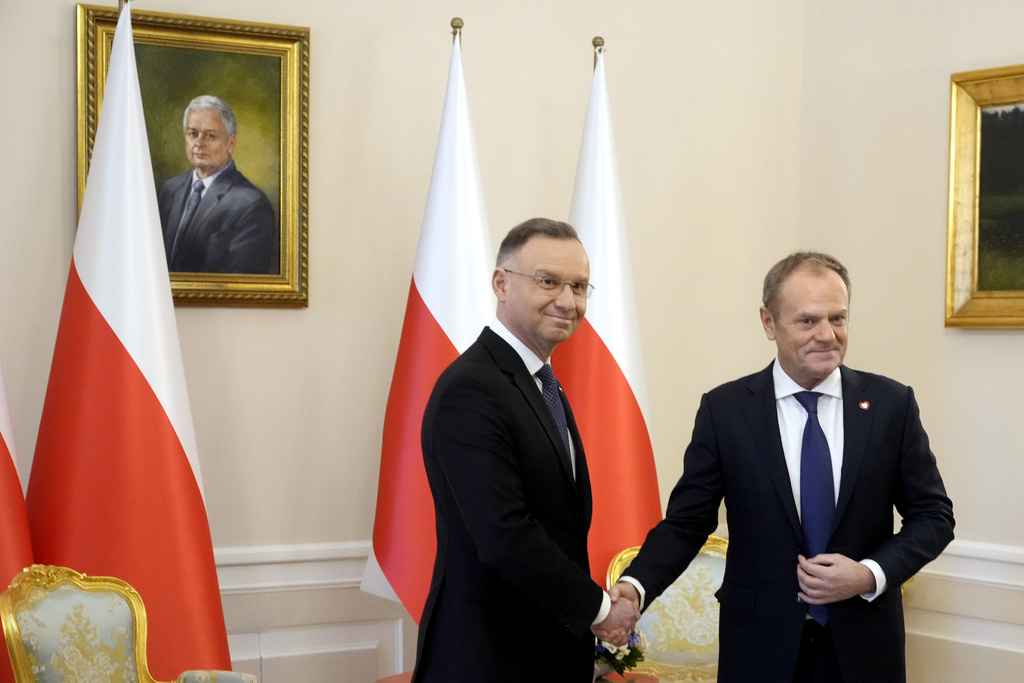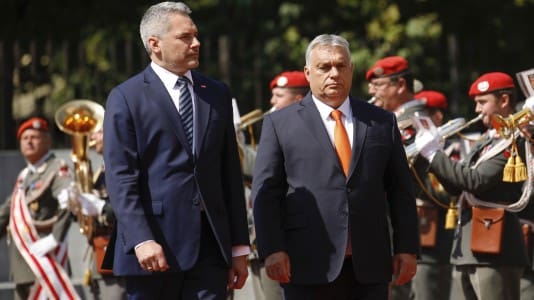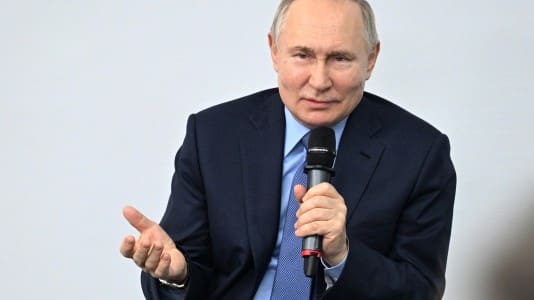Polish President Andrzej Duda met with Prime Minister Donald Tusk and told him to “please stop trying to violate the law,” with Tusk responding that they would have to agree to disagree. The two political rivals are now locked in an unprecedented struggle over the future of Poland, as Tusk is accused of turning the country into a police state that rules through brute force.
The meeting took place ahead of Tusk’s visit to Ukraine and was to focus on security issues, but the dispute between the new ruling coalition and the conservative Law and Justice (PiS) opposition dominated the meeting.
Duda challenged the government’s decision to dismiss the national prosecutor and appoint an acting one as totally unlawful, since the law obliges such decisions to be consulted with the head of state. He said the Justice Minister Adam Bodnar must “step back from the path of lawlessness and stop these deplorable actions.”
In his own remarks after the meeting, Tusk confirmed that “Bodnar’s opinion is different from the one expressed by the president,” but he said that all disputes “should be subject to legal verification.”
“If someone believes that there is a conflict with the regulations, they can seek legal review,” said Tusk. “We will respect this right of the opposition, as well as the decisions of the courts,” he added. However, the prime minister also pledged that his government would continue with its efforts to “restore the legal order, whether someone likes it or not.”
This would involve “some very tough decisions” but there is “no other way to clear up the situation in Poland.”
Duda said that during his meeting with Tusk, he had also called on Bodnar to “comply with my request to start the pardon procedure in the case of Mariusz Kamiński and Maciej Wąsik,” the two convicted former PiS government ministers who were last week arrested in the Presidential Palace and jailed.
Tusk responded by saying that “if the president decides to pardon them, the prisoners should be released immediately.” But he also added that “everyone, without exception, whether a president, a minister, an MP, but also a retiree or a high school student, should be subject to exactly the same legal rigors.”
“Courts, not politicians, should decide if someone is guilty or innocent,” said the prime minister. “I don’t think I can convince the president of that,” he added.
Among the other topics discussed by the president and the prime minister were changes to the public media, which, in the president’s view, also violated the constitution. Last week, a court in Warsaw ruled that the changes had been invalid. Duda said that he believes it is possible for him and the government to work out “legislative solutions on the future of public media.”
The president also stated that he was open to cooperation and consultation with the government on the appointment of a Polish candidate to the next European Commission, adding that in foreign policy, including regarding the war in Ukraine, he and the government are in general agreement.
The meeting was therefore one in which the president and the prime minister simply outlined their differences, which signals a difficult 18 months of co-habitation ahead. According to sources close to Duda, he will maintain his stance of pleading for dialogue and urging de-escalation, pointing to external threats requiring cooperation.
However, Tusk’s line is that it is up to the president to be accommodating so that his remaining time in office is constructive, and said that if this is not the case, the government will find ways of getting its policies implemented by executive rather than legislative means. Tusk then cited the case of “the morning after pill,” which the government was determined to make available whether by legislation or executive order should the president veto the legislation.






